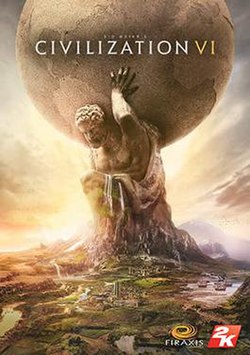 | |
| "The Road Not Taken" by Robert Frost |
The poem on the right is one of America's best-known poems
by one of our best-known poets. Most people think of it as speaking to the importance of of how standing
out from the crowd and marching to a different drummer is of supreme importance (...the one less traveled by..) while the poet
himself (and a lot of critics) point out that it is about regret and
might-have-beens. (the sigh in the last stanza is not contented but regretful).
For my part, I am going to use it to speak to multiple
universes. And the fate of multiple universes to eventually become singular.
The idea of divergent universes is an oft-used conceit in fiction - that every decision spurs off a completely separate universe,
identical except for the fact that this one decision has been made. Sometimes
the separate universe is radically different, sometimes it is similar except
for one crucial detail, depending on the nature of the story being told. The
hows and whys of that is a matter of temporal topology and not quite what we're
talking about here. What I am considering is the sheer aggregate of decision
points that get made on a daily basis.
While the poem's speaker is at a conscious decision point,
making a single choice, we are making decisions continually on the fly, at a flurrying
clip. Wake up or sleep in? Which shirt to wear? Make breakfast or skip? Two or
three sausages for breakfast? So before I even leave the house I have cast off
a multitude of multiverses, almost but not quite identical. And that is just for me. The cats could be setting
up their own universes as the same time.
The vast majority of these choices make no difference
whatsoever. Maybe some of them have long-term effects (I skip breakfast, get
hit by a car because I am four minutes early to a traffic light,
Faster-than-light travel is thereby delayed by ten years), but there is no real
way of telling at the time of the decision whether this is a minor decision, or
one that I will look at years hence and say, "If only I had taken the
other road." (which is what the poem is saying).
So universes are sharding off continually, but these small
existential universes quickly collapse back into the main probabilities. In
Frost's terms, all the paths eventually converge in that yellow wood, so it
does not matter The timeline splits but then comes back together. So instead of
divergent timelines, we get a cloud of possibilities that tend to coalesce back
into a smooth temporal narrative.
And the larger the scope of time becomes, the more of these
potential universes become the same universe. And, if the universe is fated to
an ultimate contraction or a cosmic entropy, all the universes will come
together into the same ending. The path only matters to the individuals on that
path.
Tied into that is that we seem to remember things
differently. This has been called the Mandela Effect, and posits that, instead
of people just remembering things wrong (which, to be honest, is more likely but less fun),
we have alternate pasts which are converging into a coherent universe, and our
memories are the sole evidence (such as it is) of the previous existence
All of this provides an explanation of why 2016 has been such a
rough year. We are seeing a winnowing of possible futures, a collapse of
realities moving forward. Whether this is a natural effect (like a tide, or the breath of a universe itself) or a
purposeful intent (like an elder god) is immaterial - realities are folding in
on themselves as we move to a unified universe.
So. A large number of famous people pass on. Weird political results overturn the expected. And yes, even things like a folk singer winning the Nobel for Literature or the Cubs winning a World Series. All of this represents a shift in realities as ours merge with others to produce a final state, and eventually the heat death of the universe.
So we bid 2016 goodbye and hope that 2017 bodes better (even though calenders, like constellations, are mortal attempts to place order onto the universe), and that we reach a stopping point of this multiversal consolidation. Else we will pitch headlong into a future where the past has changed, where everyone knows that Atlantis sunk beneath the waves and the re-election of Jerry Ford.. It probably won't happen that way, but if it does, try to remember you read it hear first (because in such a future, this entry will have changed as well).
More later,
More later,




